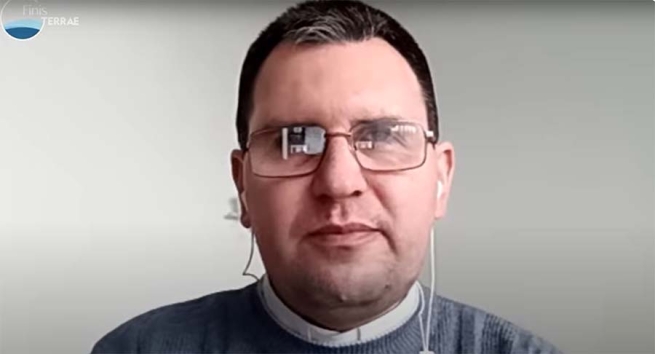Bishop Ryabukha talks about his own experience in the areas most affected by the conflict. His voice is accompanied by infographics and a report explaining the divisions between Christians in Ukraine and Russia, dramatically in the news these days.
"Where there is still the possibility of doing so, the children seek to share moments of catechism, meals together, games, after-school activities, and to create a sense of security, of serenity, through moments of prayer," he says, "Because this feeling of family, this praying together, brings back the sense of God's presence in your life.
The Salesian also talks about youth experiences and summer camps held in the Donbas - in which the diocese of which he is auxiliary is included - back in the past years when that region was already suffering from war. "The thought with which we would go was to give the kids back the chance to breathe a healthy environment, without hearing gunfire and explosions, to relax and be serene ... With meals guaranteed regularly, which is not ordinary where there is war."
Through his pastoral experiences, he has met thousands of young people and got a very clear idea of their characteristics: "They have a profound sense of freedom, which opens up to life. (....) And they are more open than the previous generation: our oratory is also attended by kids from different Orthodox communities," testifies the prelate. Who also emphasizes the signs of brotherhood amid the brutality of war: "Every day we see people from different denominations working on the ground side by side to support those in need. In war there is no time to think in what form you believe in God; you understand that that is the time to pray together and be together."
On the intervention of church organizations during the war, Archbishop Ryabukha explains, "The social commitment is very broad: on the one hand there are Caritas, which operates by trying to give guarantees at the humanitarian level; then there are psychological centers in parishes; social centers where people can be together to get out of the oppression of the problems in which they live; priests and lay people engaged in the medical field; and many others who with their work are committed to guaranteeing bread, food, basic necessities."
The full interview is available in Italian on the Pime Center's YouTube channel.


